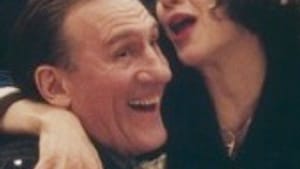Stay in the Loop
BSR publishes on a weekly schedule, with an email newsletter every Wednesday and Thursday morning. There’s no paywall, and subscribing is always free.
"La Vie en Rose' (second review)

Remembrance of things missed:
Reflection on La Vie en Rose
RICHARD CHAITT
I knew little about Edith Piaf. She died before the Beatles hit America, and my interest in French singers was colored by my low grades in French classes. Still, La Vie en Rose seems clichéd. Many of the incidents seem fabricated out of whole cloth, even if they weren't.
Seeing this film felt like waiting two months for a dinner reservation, only to discover that the meal was merely good. The greatest thing about Edith Piaf was her music, which gets short shrift in La Vie en Rose.
Bio pix have been with us seemingly forever. Sometimes, what they include is not nearly as important as what’s left out. La Vie en Rose spans more than forty years of Piaf’s life but dwells on the tragedies at the beginning and the end without touching much on the success that makes her story worth our attention. And the most traumatic event in France during the 20th Century— the four years of German occupation— are not covered at all. Other films about famous people have zeroed in on a more limited (but more meaningful) time frame. Think, for example, of Patton (which focused on the World War II years) and Capote (which focused on the researching and writing of In Cold Blood).
At two hours and 20 minutes, La Vie en Rose seemed almost as long as Edith Piaf’s relatively short life. The film’s disjointed chronology of the movie didn’t work for me. I felt like Billy Pilgrim in Slaughterhouse Five: unstuck in time. But all of the above was almost offset by the acting and singing. I just wished I could have heard more of the film’s presumed raison d’être: Edith’s songs.
Richard Chaitt lives in Havertown, Pa.
To read a reply, click here.
To read Dan Rottenberg’s comments on this film, click here.
Reflection on La Vie en Rose
RICHARD CHAITT
I knew little about Edith Piaf. She died before the Beatles hit America, and my interest in French singers was colored by my low grades in French classes. Still, La Vie en Rose seems clichéd. Many of the incidents seem fabricated out of whole cloth, even if they weren't.
Seeing this film felt like waiting two months for a dinner reservation, only to discover that the meal was merely good. The greatest thing about Edith Piaf was her music, which gets short shrift in La Vie en Rose.
Bio pix have been with us seemingly forever. Sometimes, what they include is not nearly as important as what’s left out. La Vie en Rose spans more than forty years of Piaf’s life but dwells on the tragedies at the beginning and the end without touching much on the success that makes her story worth our attention. And the most traumatic event in France during the 20th Century— the four years of German occupation— are not covered at all. Other films about famous people have zeroed in on a more limited (but more meaningful) time frame. Think, for example, of Patton (which focused on the World War II years) and Capote (which focused on the researching and writing of In Cold Blood).
At two hours and 20 minutes, La Vie en Rose seemed almost as long as Edith Piaf’s relatively short life. The film’s disjointed chronology of the movie didn’t work for me. I felt like Billy Pilgrim in Slaughterhouse Five: unstuck in time. But all of the above was almost offset by the acting and singing. I just wished I could have heard more of the film’s presumed raison d’être: Edith’s songs.
Richard Chaitt lives in Havertown, Pa.
To read a reply, click here.
To read Dan Rottenberg’s comments on this film, click here.
Sign up for our newsletter
All of the week's new articles, all in one place. Sign up for the free weekly BSR newsletters, and don't miss a conversation.

 Richard Chaitt
Richard Chaitt